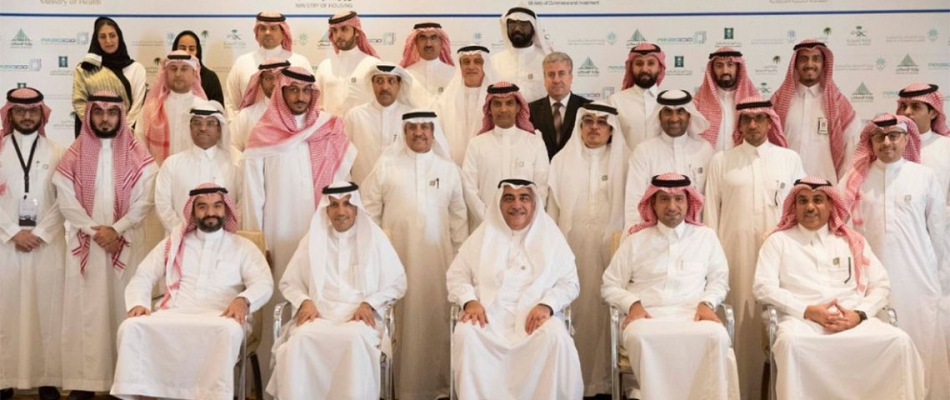Gastat Launches “Masdar”: The National Statistical Data Program as the largest national bank for statistical indicators
With the Participation of Five Ministers Gastat Launches “Masdar”: The National Statistical Data Program as the largest national bank for statistical indicators In support of decision and policy makers and with the participation of their Excellencies the Ministers, the General Authority for Statistics (GaStat), launched the statistical data program “Masdar” on Monday, 30 Shawwal, 1438H (July 24, 2017) in Jeddah, to serve as a bank for national statistical indicators.
The launching of the program was attended by HE the Minister of Economy and Planning Eng. Adel Fakeih, HE the Minister of Labor and Social Development Dr. Ali Al-Ghafis, HE the Minister of Trade and Investment Dr. Majid Al-Qasabi, HE the Minister of Housing Majid Al-Haqail, and HE the Minister of Communications and Information Technology Eng. Abdullah Al-Sawahah.
HE the president of Gastat, dr. Fahad Altekhaifi, valued the attendance and participation of their Excellencies the Ministers and stressed that this program implemented by GaStat is a result of the royal orders and directives to form a comprehensive system of national statistical databases for various fields and create a central information system in GaStat at the national level, which is automatically linked to all parties to be a major supporter for decision makers. Dr. Fahad Altekhaifi explained that the program works according to three main dimensions: a statistical dimension that addresses the numerous sources of data and statistical indicators and their inconsistencies, its multiple classifications, and its collection in a traditional way. The national statistical data program “Masdar” will establish a joint work with all relevant entities to unify statistical data and indicators in a platform that gathers all data, information and indicators from different internal and external sources under one place. It will also address the availability and dissemination of information as it will address the limited access to information in their time series and facilitate some of the difficulties faced by data users and researchers to reach it. GaStat president explained that “Masdar” is considered a unified portal to display data from various sources in the form of usable information and various digital templates in an integrated information system which provides advanced communication mechanisms between the producers of statistical data and users, and allows all data to everyone to benefit from them according to the nature of use.
He added that the third dimension of this program is the technical dimension. “Masdar” is a safe and comprehensive technical solution that addresses the enormity of statistical data and the absence of central data repositories, to serve as a national statistical data bank and provides a variety of analytical tools that meet the needs of all analysts, researchers or decision makers.
On the other hand, HE stressed that “Masdar” will work according to several issues starting from next month, so that every issue will gather a number of government sectors until the completion of its stages and issues in the coming years, to form three main portals: a unified portal for interactive statistical data for the public, a portal for interactive data for public and private entities, and a third portal for Metadata exchange services between government agencies. It will allow the user, analyst and researcher for self-service to build indicators, through smart applications and interactive screens of statistical indicators simultaneously and uniformly from all sources.
GaStat president said that a global national alliance of the largest technical and statistical companies is working on the completion of the project through several stages. These stages were divided into six issues, which included nine major statistical sectors according to international standards to divide the statistical sectors: Financial and economic sector, Manpower and Labor Market sector, Health Sector, Education Sector, Population Sector, Water, Energy and Resources Sector, Government and Social Services Sector, Hajj, Umrah and Tourism Sector, and Agriculture Sector. So that the start of work will be with the stakeholders in the financial and economy sector which will be next month, to identify the indicators and standardization of data collection and classification as preparatory stage for the design, building and operation of applications in a continuous work cycle repeated to all sectors.


